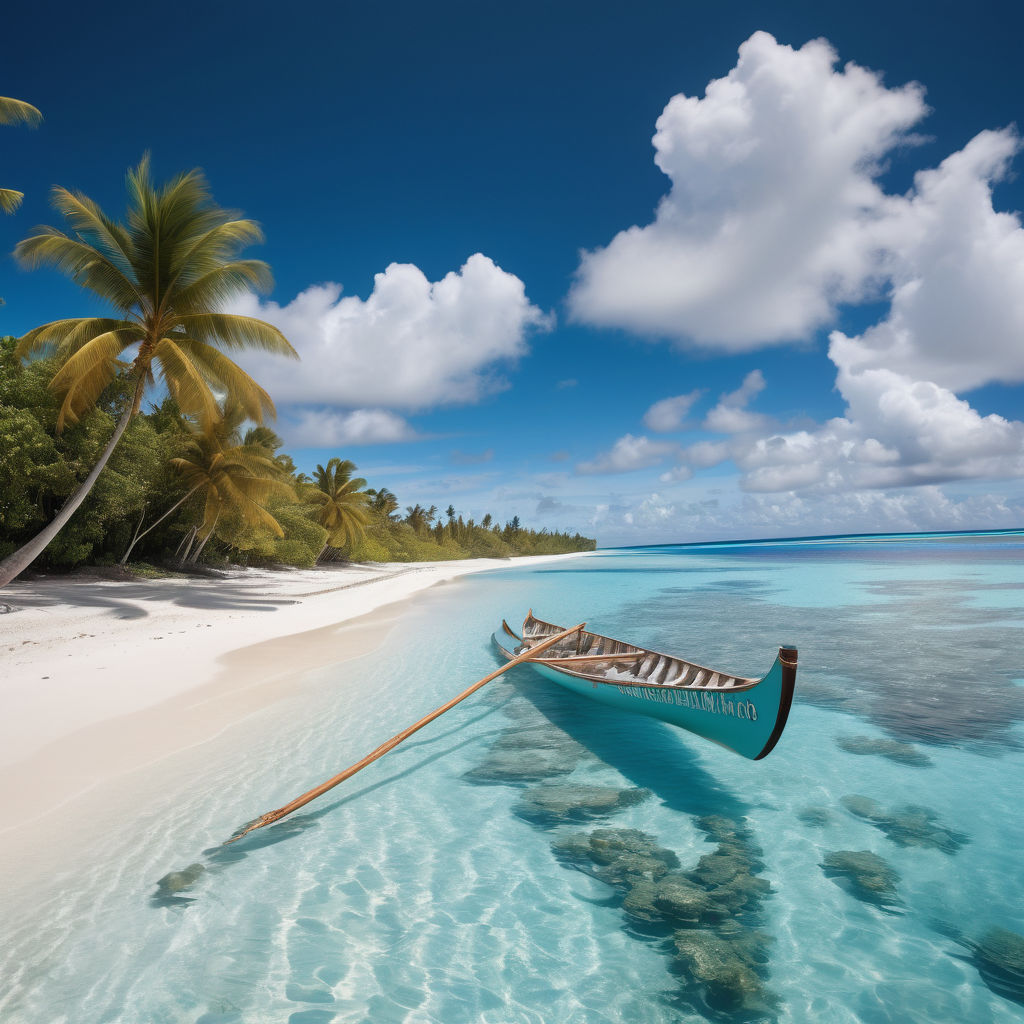Introduction to the Marshall Islands: A Pacific Paradise
Discover the Rich Cultural Heritage and Modern Influences of the Marshall Islands

Introduction to the Marshall Islands
The Marshall Islands, officially known as the Republic of the Marshall Islands (RMI), is a country located in the central Pacific Ocean. It comprises 29 atolls and five isolated islands, forming two parallel chains known as the Ratak (Sunrise) and Ralik (Sunset) Chains. The capital, Majuro, is situated on the Majuro Atoll and serves as the administrative and economic hub. The Marshall Islands' rich cultural heritage is deeply rooted in its history, characterized by traditional navigation, weaving, and a vibrant oral tradition. Despite its small land area, the country has a significant presence in the Pacific region, blending traditional customs with modern influences.
Cross-national and Cross-cultural Understanding
The people of the Marshall Islands, known as Marshallese, generally perceive and engage with other cultures with an open and welcoming attitude. This openness is partly due to the country's historical interactions with various foreign entities, including Spanish, German, Japanese, and American influences. The legacy of these interactions has fostered a cultural milieu that is receptive to cross-cultural exchanges. Educational programs and international partnerships play a crucial role in promoting cross-cultural understanding. For instance, the Compact of Free Association with the United States facilitates educational exchanges, allowing Marshallese students to study in the US and return with diverse perspectives and skills. Additionally, organizations like the College of the Marshall Islands and the University of the South Pacific's Marshall Islands campus host international faculty and students, promoting a multicultural academic environment. Cultural exchanges are also evident in events such as the annual Marshall Islands Cultural Day, which celebrates traditional customs while inviting participation from expatriates and visitors. These interactions help to bridge cultural gaps and promote mutual understanding.
Interactions and Social Dynamics
Typical interactions between Marshallese and foreigners are marked by friendliness and hospitality. Marshallese social behaviors emphasize community and familial bonds, which extend to their interactions with visitors. Respect for elders and communal decision-making are central to Marshallese culture, influencing how they communicate and interact with others. Communication styles in the Marshall Islands are generally informal and relaxed, with a strong emphasis on storytelling and oral tradition. English is widely spoken, particularly in urban areas and educational institutions, alongside the Marshallese language. This bilingualism facilitates interactions with English-speaking foreigners and enhances cross-cultural communication. Notable cultural norms include the practice of "bwebwenato," a term that encompasses storytelling, informal conversation, and the sharing of news and information. This cultural practice underscores the importance of interpersonal relationships and communal engagement in Marshallese society.
Views on Dating and Relationships
Marshallese attitudes towards dating and relationships with foreigners are shaped by traditional values and contemporary influences. While traditional Marshallese society tends to be conservative, especially in rural areas, urban centers like Majuro exhibit more relaxed attitudes towards dating. Cultural expectations play a significant role in relationships. Family approval is often sought, and relationships are typically expected to progress towards marriage. Foreign partners are generally welcomed, provided they respect local customs and traditions. The Marshallese place a high value on family and community, and foreign partners are encouraged to integrate into these social structures. Dating practices in the Marshall Islands may involve communal activities and gatherings, where families and friends participate, reflecting the collective nature of Marshallese society. Foreigners who engage in relationships with Marshallese individuals are often introduced to these communal activities, fostering mutual understanding and respect.
Marriage and Family
Marrying foreigners in the Marshall Islands is relatively common and generally accepted. Legal considerations for marriage include adhering to both Marshallese law and the laws of the foreign partner's country. Marriages must be registered with local authorities, and there may be specific residency requirements for foreign spouses. Socially, family life in the Marshall Islands is centered around extended family structures, with a strong emphasis on collective responsibility and support. Cross-cultural marriages are viewed as opportunities for cultural enrichment and the exchange of traditions. Foreign spouses are expected to participate in family and community life, contributing to the social fabric of Marshallese society. Common practices in cross-cultural marriages include blending traditions from both cultures in wedding ceremonies and family celebrations. This integration of customs creates a rich, diverse familial experience that enhances the cultural awareness of both partners and their extended families.